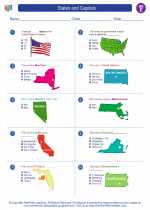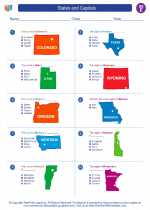States and Capitals -> privacy
Privacy
Privacy refers to the ability of an individual or group to seclude themselves or information about themselves, and thereby express themselves selectively. It is a fundamental human right and is essential for maintaining personal autonomy, dignity, and security.
Importance of Privacy
Privacy is important for several reasons:
- Protection of personal information
- Preservation of individual autonomy
- Maintaining confidentiality and trust
- Preventing unauthorized access and misuse of personal data
Types of Privacy
There are different types of privacy, including:
- Physical privacy - the right to be free from intrusion into one's personal space
- Informational privacy - the right to control the collection and dissemination of personal information
- Communicational privacy - the right to communicate without surveillance or interception
Privacy Laws and Regulations
Many countries have laws and regulations that protect individuals' privacy, such as the General Data Protection Regulation (GDPR) in the European Union and the Health Insurance Portability and Accountability Act (HIPAA) in the United States.
Study Guide
Here are some key points to remember when studying privacy:
- Define privacy and explain its importance.
- Identify the different types of privacy.
- Discuss the impact of privacy laws and regulations on individuals and organizations.
- Explain how privacy is related to human rights and personal autonomy.
◂Social Studies Worksheets and Study Guides Fifth Grade. States and Capitals
Study Guide States and Capitals
States and Capitals  Worksheet/Answer key
Worksheet/Answer key States and Capitals
States and Capitals  Worksheet/Answer key
Worksheet/Answer key States and Capitals
States and Capitals  Worksheet/Answer key
Worksheet/Answer key States and Capitals
States and Capitals 

 Worksheet/Answer key
Worksheet/Answer key
 Worksheet/Answer key
Worksheet/Answer key
 Worksheet/Answer key
Worksheet/Answer key

The resources above cover the following skills:
Geography: A student should be able to utilize, analyze, and explain information about the human and physical features of places and regions. A student who meets the content standard should:
Understand that a region is a distinct area defined by one or more cultural or physical features.